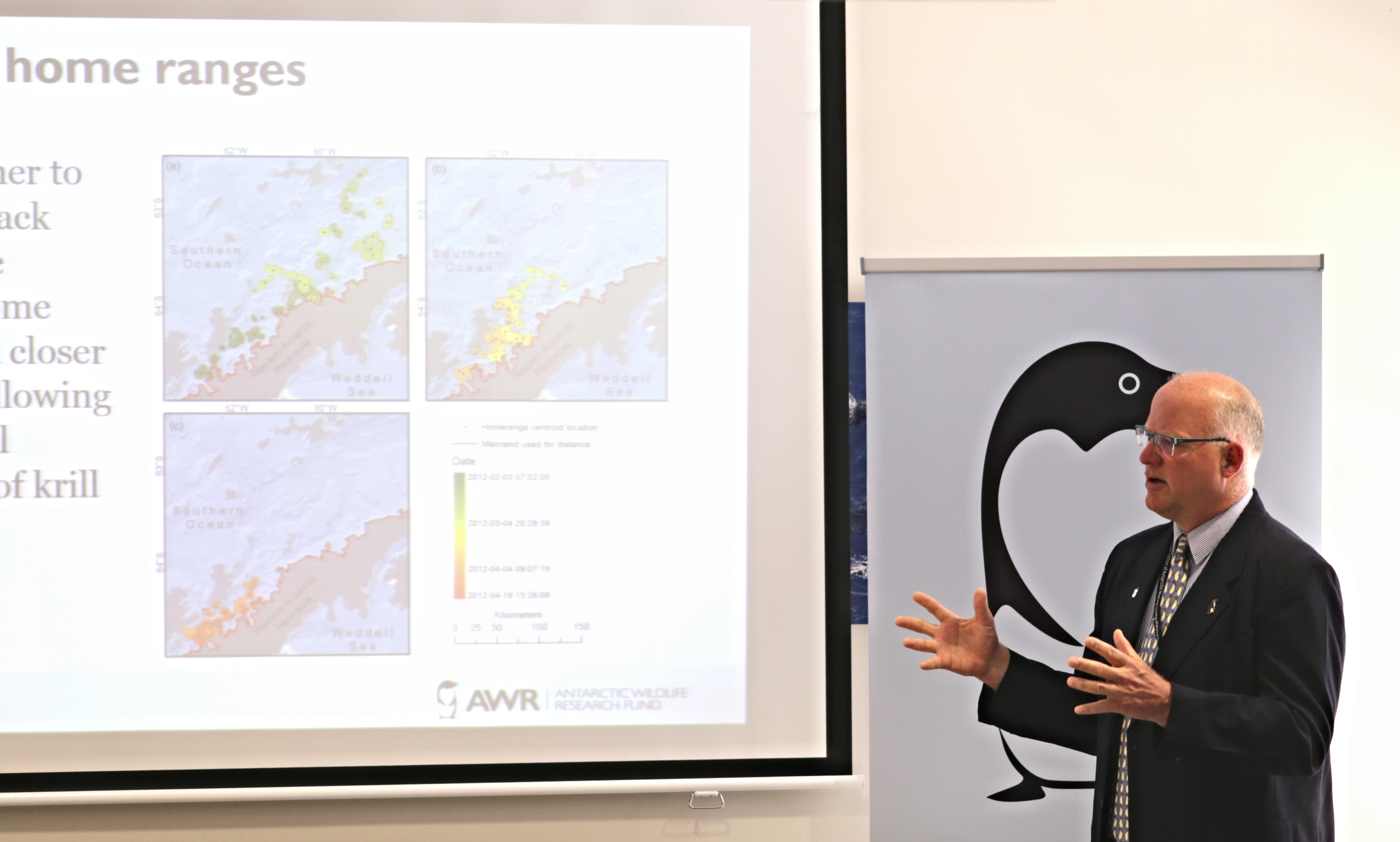Do non-breeding Adélie, chinstrap, and gentoo penguins potentially use different habitats and feeding locations than those used by breeding penguins? That is something Dr. Andrew Lowther and his colleagues from Norwegian Polar Institute and British Antarctic Survey will explore during the summer at West Coronation Island, Signy Island and Powell Island.
He admits choosing to become a scientist due to his curiosity about his surroundings, always wanting to know 'why things are the way they are'. He also enjoys learning about the real world, so to him being a field biologist is the perfect combination of exercising the grey matter as well as enjoying a life outdoors.
Lowther et al. aim to address the knowledge gap on adult, non-breeding, and therefore more mobile, birds in a region where most of the krill fishing in the Southern Ocean takes place. During the 2015-2016 field season they will collect at-sea foraging data on non-breeding adults at several different sites in the same year.
When discussing why he decided to do research in the Antarctic in the first place, his reasoning was based on understanding the adaptive coping mechanisms of the species there. In his mind animals have three basic options. They can adapt and survive in order to reproduce, migrate the area for a more suitable environment, or three - lay down and die. Exploring the mechanisms in these species that made them stay in the harsh environment of the Antarctic continent is very interesting. He also adds that the southern ocean plays a critical role in global climatology, and that we can identify changes in this system through the behavior of animals, as well as using them as sensor platforms to collect environmental information in regions that humans cannot venture.
In his research the data will be collected alongside similar data on breeding adult penguins from each species, providing additional comparative studies on breeding and non-breeding penguins and the effects of interspecific competition between birds that are breeding versus those that are not breeding. This will contribute to a better overall understanding of the habitat and prey needs of penguins.
Finally, we challenged him to tell us about his most interesting research, using only five sentences:
"In terms of importance it would have to be the long-term monitoring programme at the worlds most remote island, Bouvetøya. The island hosts the second largest population of Antarctic fur seals in the world, and huge populations of penguins and flying seabirds. There are also hundreds of elephant seals that travel yearly to the Antarctic shelf, making this location literally a biological oasis in the middle of the South Atlantic. To see environmental change over time, it stands to reason there is a critical need for long-term datasets of how animals respond to their environment. By conducting dietary and tracking studies on all these species we are collecting such a time series both around Bouvetøya and, using elephant seals, the Antarctic continental shelf around Dronning Maud Land."

















